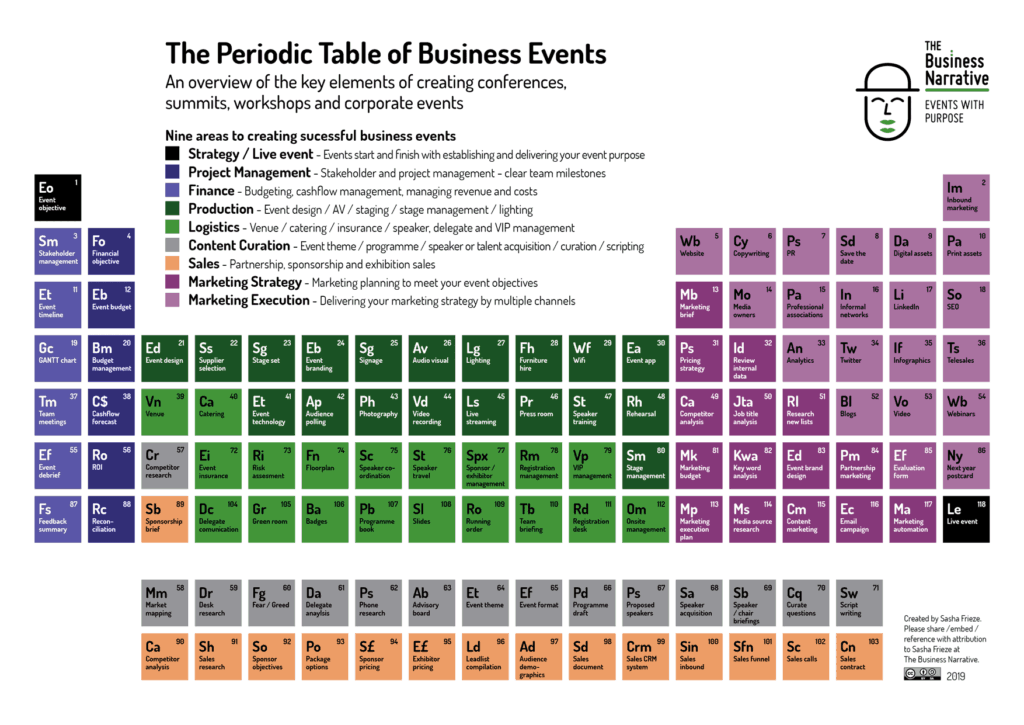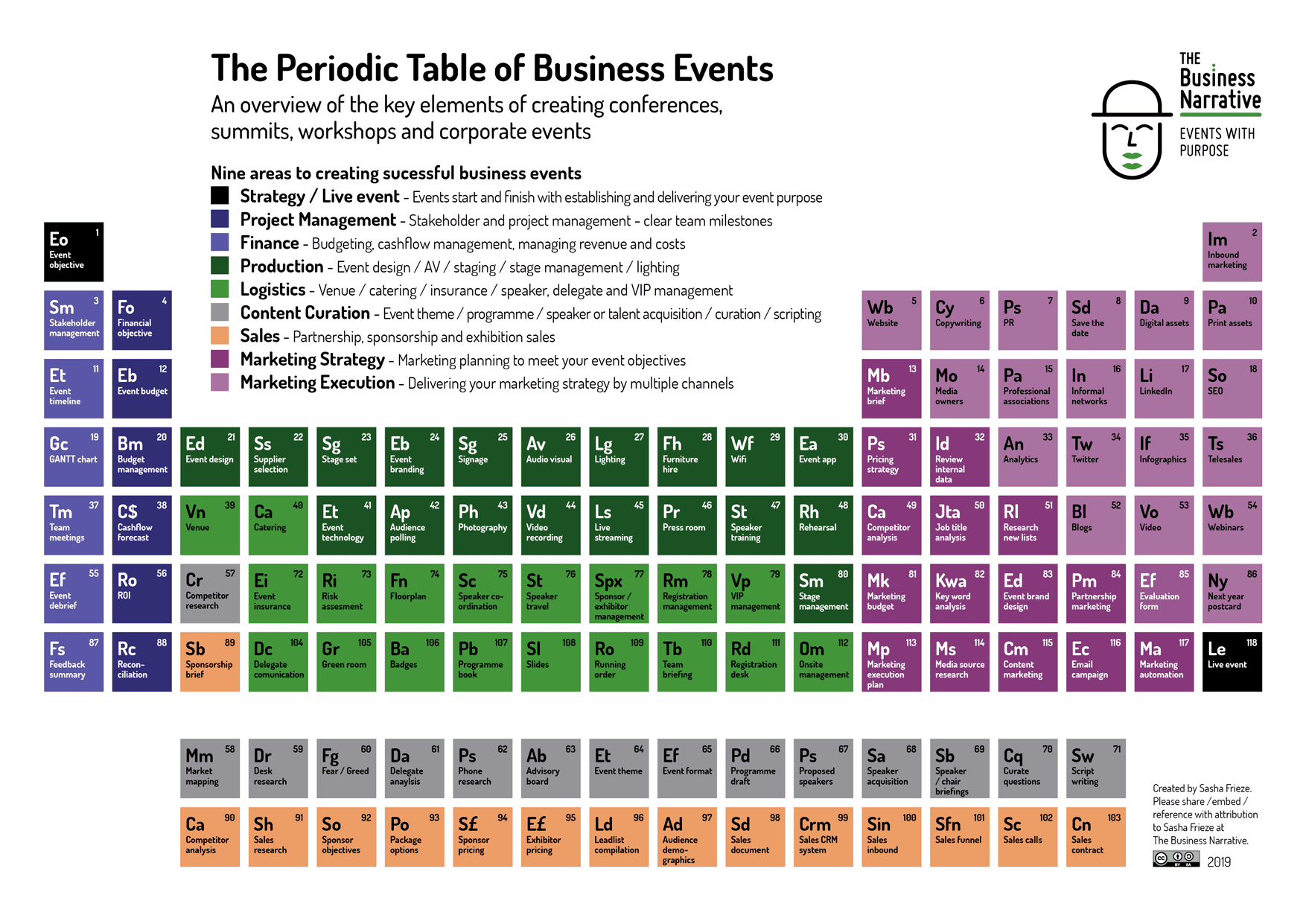
There are so many moving parts to business events – establishing event objectives, managing stakeholders, project management, finance and budgeting, production and logistics, content, sales and partnerships, marketing strategy and execution, and of course bringing it all together on the day for the live event.
I often liken it to making a movie; you bring together a diverse project team, convene a purposeful event, curate the right guest list, create excellent content, and produce an experience that engages and delights attendees – and ultimately aims to make a meaningful impact.
In recent months – through my coaching, client engagements and teaching – I’ve been asked quite a few times “where to start” – and I know it can be challenging thinking through all the inner workings of live events. So I’ve created the Periodic Table of Business events to guide, inspire and support clients and #eventprofs.
It seems to me that there are nine key areas to creating successful business events:
- Strategy / Live event – it all starts and finishes with your event purpose (begin with the end in mind) and then delivering on that vision
- Project management – establishing stakeholders, creating a timeline and clear team milestones, setting up the key meetings ahead of time
- Finance – what are we trying to acheive, financially? Everything from budgeting, cashflow management, ROI (return on investment) and reconciliation
- Production – design / AV / staging / stage management
- Logistics – venue / catering / insurance / speaker, delegate + VIP management, sponsor and partner management, badges and programme guides, floorplans, running orders, briefing the team, registration and onsite management
- Content curation – mapping the market, event theme, research, programme outline, speaker or talent acquisition, curation, briefing speakers and chairs, writing scripts for on the day
- Sales – partner, sponsor and exhibitor sales; competitor analysis, sales research, understanding sponsor objectives, package creation, sales documents, funnels, CRM, calls and contracts
- Marketing Strategy – marketing planning to meet your event objectives; pricing, budgets, key word analysis, event brand design, content marketing, setting up a Marketing Execution Paln
- Marketing execution – delivering your marketing strategy by multiple channels; website, social media, Twitter, associations, sector publications, informal networks, PR
I hope it’s helpful – ping me on Twitter with any comments / feedback.




